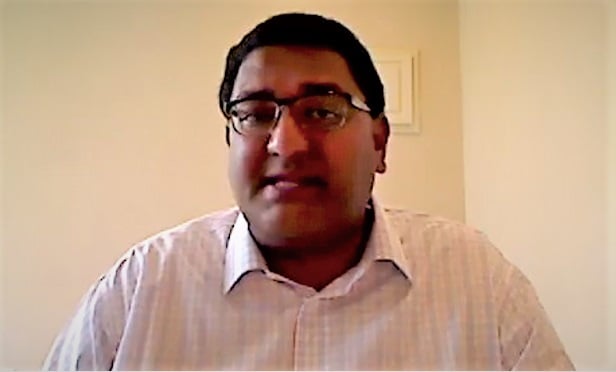
 Sri Reddy (Credit: Longevity-Project.com)
Sri Reddy (Credit: Longevity-Project.com)
The Federal Reserve Board is trying to hold down interest rates to nurse the economy through the COVID-19 crisis.
That might be good for the stock market, and overall short-term financial stability, but it's not good for people who are trying to plan to make retirement income last until age 100, or longer.
Sri Reddy, the head of the retirement and income solutions unit at Principal Financial Group Inc., talked about the hit retirement savers are taking last week, during a webinar organized by the Longevity Project.
Resources
- A video recording of the Longevity Project webinar is available here.
- An article about an earlier Longevity Project event is available here.
The Longevity Project is a coalition for financial services companies and other organizations that want to talk about the implications of people living longer lives.
Some speakers pointed out that the current market turmoil has caused only a relatively small drop in asset levels for most long-term retirement savers.
But Reddy — who, like the other webinar participants, was working from home, and logged into the webinar via Zoom — said he thinks that many of the steps the government is taking, such as encouraging people to take $100,000 out of retirement savings to cope with short-term, COVID-19-related needs, and driving down interest rates, effectively punish savers, and dramatically increase pension plan funding costs.
"You're artificially trying to force money into the stock market, to keep it at levels that may or may not be warranted," Reddy said.
Traditional stock value measures suggest that stocks are relatively expensive, Reddy said.
Another problem, he said, is that many consumers who are trying to arrange their post-retirement finances are risk-averse savers by nature, rather than risk-tolerant investors.
"We know they should stay the course," Reddy said of individual investors looking at ups and downs in stock prices.



